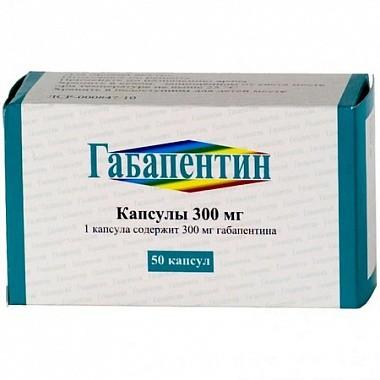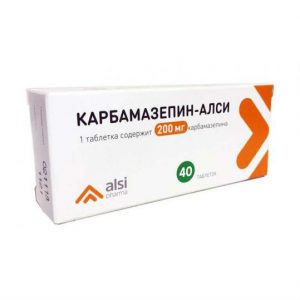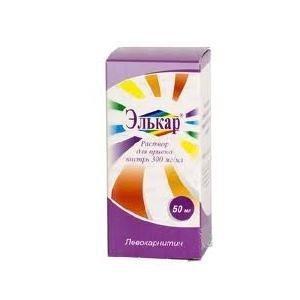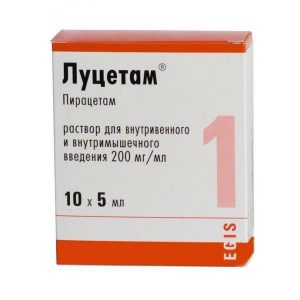Description
Release form
Hard gelatine capsules, size No. 0, white content of the capsules is a white or white powder with a yellowish tint.
Packing
10 pcs. – blister packagings (5) – packs of cardboard.
50 pcs – polymer cans (1) – packs of cardboard.
The pharmacological action of
Gabapentin is similar in structure to the neurotransmitter gamma-aminobutyric acid (GABA), but its mechanism of action is different from other drugs that interact with GABA receptors (valproic acid, barbiturates, benzodiazepines, GAB inhibitors, inhibitors GABA agonists and prodrug forms of GABA). It does not have GABAergic properties and does not affect the uptake and metabolism of GABA.
Preliminary studies have shown that gabapentin binds to the 2 – subunit of voltage-dependent calcium channels and reduces the flow of calcium ions, which plays an important role in the occurrence of neuropathic pain. Other mechanisms of Gabapentin’s action in case of neuropathic pain are a decrease in glutamate-dependent death of neurons, an increase in GABA synthesis, suppression, release of neurotransmitters of the monoamine group.
Gabapentin at clinically relevant concentrations does not bind to receptors of other common drugs or neurotransmitters, including GABAA, GABAA, benzodiazepine, glutamate, glycine or N-methyl-D-aspartate receptors. Unlike phenytoin and carbamazepine, gabapentin does not interact with sodium channels in vitro.
Gabapentin partially attenuated the effects of the glutamate receptor agonist N-methyl-D-aspartate in some in vitro tests, but only at a concentration of more than 100 μmol, which was not achieved in vivo. Gabapentin slightly reduces the in vitro release of monoamine neurotransmitters.
Pharmacokinetics
Bioavailability of gabapentin is not dose proportional. So, with an increase in dose, it decreases. After ingestion of Cmax, Gabapentin in plasma is achieved after 2-3 hours. The absolute bioavailability of Gabapentin in capsules is about 60%. Food, including high in fat, does not affect pharmacokinetics.
The excretion of gabapentin from plasma is best described using a linear model. T1 / 2 from plasma is dose-independent and averages 5-7 hours. Pharmacokinetics do not change with repeated use. Equilibrium plasma concentrations can be predicted based on the results of a single dose. Gabapentin practically does not bind to plasma proteins (d 57.7 L. It is excreted exclusively by the kidneys unchanged, is not exposed to metabolism.
The drug does not induce mixed-function oxidative liver enzymes involved in drug metabolism. Gabapentin clearance from plasma is reduced in the elderly and patients with impaired renal function. Excretion rate constant, plasma clearance, and renal clearance are directly proportional to creatinine clearance.
Gabapentin is removed from plasma by hemodialysis. In patients with impaired renal function and patients receiving hemodialysis treatment, dose adjustment is recommended.
Contraindications
hypersensitivity to any of the components of the drug,
age up to 12 years with partial seizures.
Caution: renal failure.
Use for impaired renal function
Use with caution in case of renal failure.
In patients with impaired renal function and patients receiving hemodialysis treatment, a dose adjustment is recommended.
Use in children
Contraindicated in children under 12 years of age with partial seizures. For the treatment of neuropathic pain, do not prescribe to children and adolescents under the age of 18 years.
Use during pregnancy and lactation
There is no data on the use of the drug in pregnant women, therefore, Gabapentin is not available on the use of the drug in pregnant women, therefore Gabapentin should be used during pregnancy only if the intended benefit to the mother justifies the possible risk to fetus.
Gabapentin is excreted in breast milk, its effect on the nursing baby is unknown, therefore, during the treatment, breast-feeding should be abandoned. It should be used during pregnancy only if if the intended benefit to the mother justifies the possible risk to the fetus.
Gabapentin is excreted in breast milk, its effect on the nursing baby is unknown, therefore, breast-feeding should be abandoned during treatment.
Special instructions
Although withdrawal syndrome with the development of seizures was not observed with Gabapentin treatment, nevertheless, a sharp cessation of antiepileptic therapy in patients with partial seizures can provoke the development of seizures.
Gabapentin is not considered an effective treatment for abscess epilepsy.
Patients who require co-treatment with morphine may need to increase the dose of gabapentin. In this case, it is necessary to carefully monitor patients for the development of such a sign of depression of the central nervous system (CNS) as drowsiness. In this case, the dose of gabapentin or morphine should be adequately reduced.
Laboratory studies of
When Gabapentin was added to other anticonvulsants, false-positive results were recorded when urine protein was detected using Ames N-Multistix SG ® test strips. To determine the protein in the urine, it is recommended to use a more specific method of precipitation with sulfosalicylic acid. Patients should avoid driving, as well as performing work requiring the speed of psychomotor reactions.
Composition
1 caps.
gabapentin 300 mg
Excipients:
calcium stearate – 4.2 mg,
sodium carboxymethyl starch (type A) – 4.2 mg,
microcrystalline cellulose – 111.6 mg.
Composition of capsules:
gelatin,
titanium dioxide
Dosage and administration
Inside, swallowing whole, regardless of food intake and drinking plenty of fluids. If it is necessary to reduce the dose, cancel the drug or replace it with an alternative agent, this should be done gradually over a period of at least one week.
Neuropathic pain in adults
The initial daily dose is 900 mg, divided into three doses, if necessary, the dose is gradually increased to a maximum of 3600 mg / day. Treatment can be started immediately with a dose of 900 mg / day (300 mg 3 times a day) or during the first 3 days the dose can be increased gradually to 900 mg per day. according to the following scheme:
1st day: 300 mg 1 time per day.
2nd day: 300 mg 2 times a day.
3rd day: 300 mg 3 times a day.
Partial convulsions
Adults and children 12 years and older: effective dose is 900 to 2400 mg / day. Therapy can be started with a dose of 300 mg 3 times a day. on the first day or gradually increase to 900 mg according to the scheme described above. Subsequently, the dose can be increased to a maximum of 3600 mg / day (divided into 3 equal doses). The maximum interval between doses when taking the drug three times should not exceed 12 hours in order to avoid the resumption of seizures.
Dose selection for renal failure
Patients with renal failure are advised to reduce the dose of gabapentin according to the table:
Creatinine clearance Daily dose (mg / sug)
> 80 900-2400
50-79 600-1200
30-49 300-600
15-29 150 * -300
150 *
* appoint 300 mg every other day
Recommendations for patients on hemodialysis
Patients on hemodialysis, which have not previously taken gabapentin, it is recommended to prescribe a drug in a saturating dose of 300-400 mg, and then apply it 200-300 mg every 4 hours of hemodialysis.
Side effects of
In the treatment of neuropathic pain
Organism as a whole: accidental injuries, asthenia, back pain, flu-like syndrome, headache, infection, pain of various localization, peripheral edema, weight gain
Digestive tract: constipation, diarrhea, mouth, dyspepsia, flatulence, nausea, vomiting, abdominal pain
Nervous system: impaired gait, amnesia, ataxia, confusion, dizziness, hypesthesia, drowsiness, impaired thinking, tremor
Respiratory system: shortness of breath, farin
git Skin and subcutaneous tissue: skin rash
Sensory organs: amblyopia.
In the treatment of partial seizures
Organism as a whole: back pain, fatigue, fever, headache, viral infection, peripheral edema, weight gain, asthenia, general malaise, facial swelling
Cardiovascular system: vasodilation symptoms or hypertension srdl Alimentary tract: constipation, dental disease, diarrhea, dyspepsia, increased appetite, dry mouth or throat, nausea and / or vomiting, abdominal pain, flatulence, anorexia, gingivitis
Blood system, lymphatic system: leukopenia, purple (most often about were written as bruises resulting from physical trauma)
Musculoskeletal system: fractures, myalgia, arthralgia
Nervous system: amnesia, ataxia, confusion, impaired coordination, depression, dysarthria, emotional lability, insomnia, nervousness, nystagmus, drowsiness, impaired thinking, tremor, muscle twitching, dizziness, hyperkinesis intensification, weakening or absence of reflexes, paresthesia, anxiety, hostility
Respiratory system: cough, pharyngitis, rhinitis, pneumonia srdlp skin : abrasions, window, itching of the skin, skin rash
Sensory organs: amblyopia, diplopia, visual impairment
Genitourinary system: urinary tract infection, impotence.
Overdose
Symptoms: dizziness, double vision, impaired speech, drowsiness, lethargy, diarrhea.
Treatment: gastric lavage, activated carbon intake, symptomatic therapy. Hemodialysis may be indicated in patients with severe renal insufficiency.
Storage conditions
Store the product in a dry, protected from light at a temperature not exceeding 25 ° C.
Keep out of the reach and sight of children.
Shelf life
2 years. Do not use after expiration date.
Active ingredient
Gabapentin
Dosage form
capsules
Possible product names
GABAPENTIN 0.3 N45 CAPS GABAPENTIN 0.3 N50 CAPS
GABAPENTIN CAPS. 300MG No. 50
Gabapentin capsules 300 mg, 50 pcs.
Pik-Pharma, Russia




